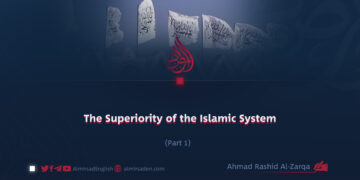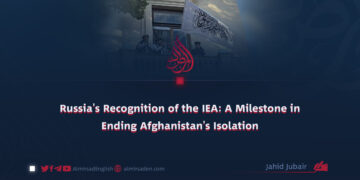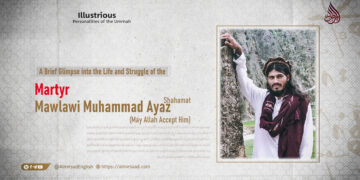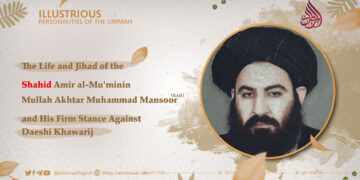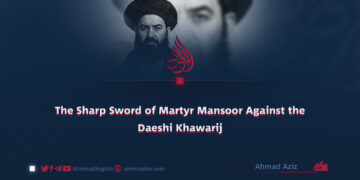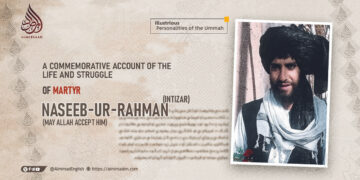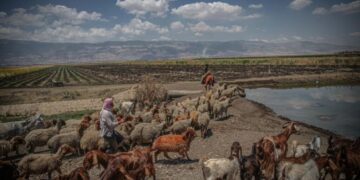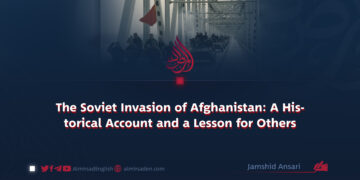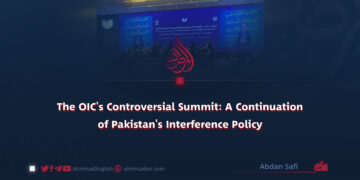Part 1
Written by: Abu Javed
The Islamic system is deemed one of the fundamental and indispensable necessities of humanity. In the absence of such a system, ignorance, prejudice, and oppression tend to prevail. Throughout the history of mankind, it has been the Islamic systems that have effectively organized human affairs, strengthened beliefs, and fostered social justice.
During a time when the world was engulfed in a shroud of ignorance and social justice was routinely violated, the elite exploited and oppressed the lower classes. The absence of the Islamic system served as the root cause of these injustices. However, with the establishment of the pillars of the Islamic system in Madinah following the migration of the Prophet Muhammad (peace be upon him), a system of governance was devised, and these injustices were effectively eradicated. Madinah evolved into a model society unparalleled anywhere in the world.
The expanding influence of this system eventually led to the decline of the formidable Roman and Persian empires, with regions such as Egypt, Syria, and Palestine becoming integral parts of this revered system.
Originating from the land of Hijaz, the Islamic system swiftly spread across the region due to its perceived unity and evident benefits, exemplifying peace and social justice.
In this discourse, I aim to delineate the advantages inherent in the Islamic system. While fully capturing its merits may prove to transcend the scope of a mere pen, I shall spare no effort in this endeavor.
Advantages/Characteristics of the Islamic System
1. Implementation and Enforcement of Divine Commands:
The supreme purpose of the creation of every being is to discharge the assigned responsibilities and practice all the commands and acts of worship ordained by the Almighty Allah. As decreed by Allah:
«وَهُوَ الَّذِي خَلَقَ السَّمَاوَاتِ وَالْأَرْضَ فِي سِتَّةِ أَيَّامٍ وَكَانَ عَرْشُهُ عَلَى الْمَاءِ لِيَبْلُوَكُمْ أَيُّكُمْ أَحْسَنُ عَمَلًا». [هود/7]
Translation:
“And He is the one who created the heavens and the earth in six days, and His Throne was upon the water, that He might test you as to which of you is best in deeds.” (Surah Hud: 7)
Furthermore:
«و ما خلقت الجن والإنس إلا لیعبدون» سورة الذاریات(۵۶)
Translation:
“And I did not create the jinn and mankind except to worship Me.” (Surah Adh-Dhariyat: 56)
The sole focus of the Islamic system is to motivate Muslims to engage in worship and fulfill divine decrees earnestly. Within its contemporary framework, a dedicated institution exists (known as Amr bil Ma’ruf wa Nahi anil Munkar—Enjoining Good and Forbidding Evil). The primary role of this institution is to steer Muslims towards acts of worship, Islamic injunctions, and ethical conduct among fellow Muslims.
Each individual bears the responsibility of preparing for the eventual accountability in the Hereafter. The Islamic system guides its inhabitants in meeting this objective by adhering to principles derived from the Qur’an and Hadith.
2. Eradication of Linguistic, Tribal, and Regional Prejudices
In contrast to other systems, the Islamic system refrains from endorsing political factions, sects, or tribal affiliations. It does not fragment its populace along ethnic lines, be it Pashtun, Tajik, Uzbek, or others. It adamantly opposes divisions based on Arab and non-Arab identities.
This principle is vividly demonstrated through the methodology of the Prophet Muhammad (peace be upon him). Upon his arrival in Madinah, he fostered brotherhood among individuals who had been embroiled in longstanding enmities. The Aws and Khazraj tribes, entangled in conflicts and boasting about their lineage and tribal honor, were reconciled and unified under the singular objective established by the Messenger of Allah (peace be upon him).
The Prophet (peace be upon him) said:
«ليس منا من دعا إلى عصبية وليس منا من قاتل على عصبية وليس منا من مات على عصبية». رواه أبو داود
Translation:
“He is not one of us who calls for tribalism, fights for tribalism, or dies for tribalism.” (Abu Dawood)
The Islamic system provides equal rights to all its citizens and does not grant superiority to any tribe over another. This unique characteristic has been a major factor in the rise and territorial expansion of the Islamic system.















